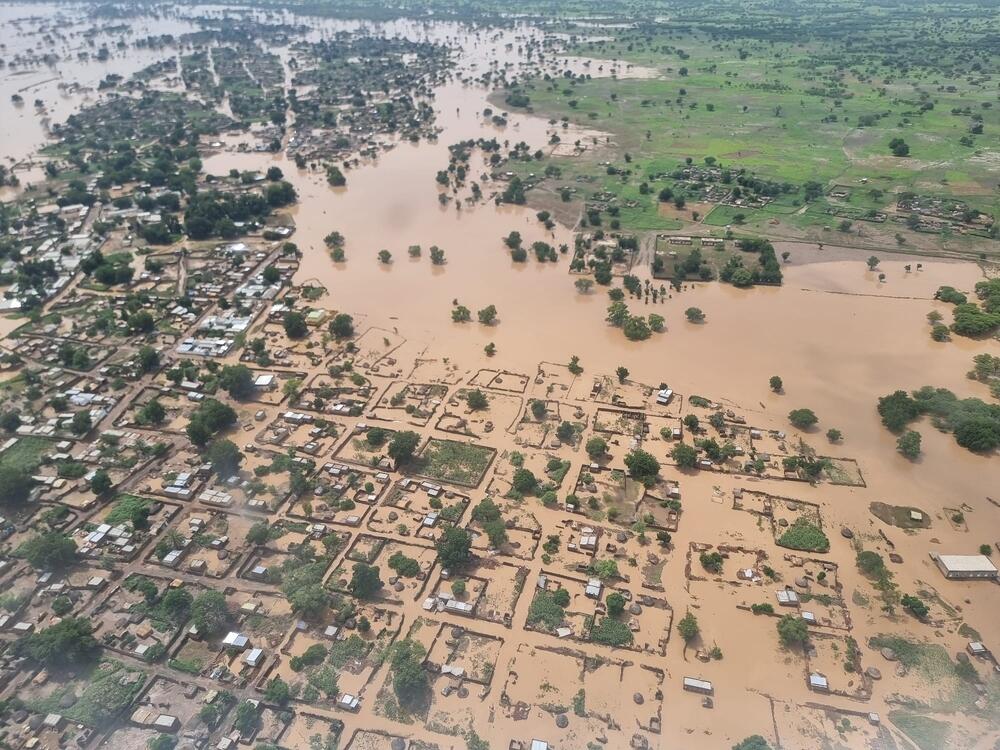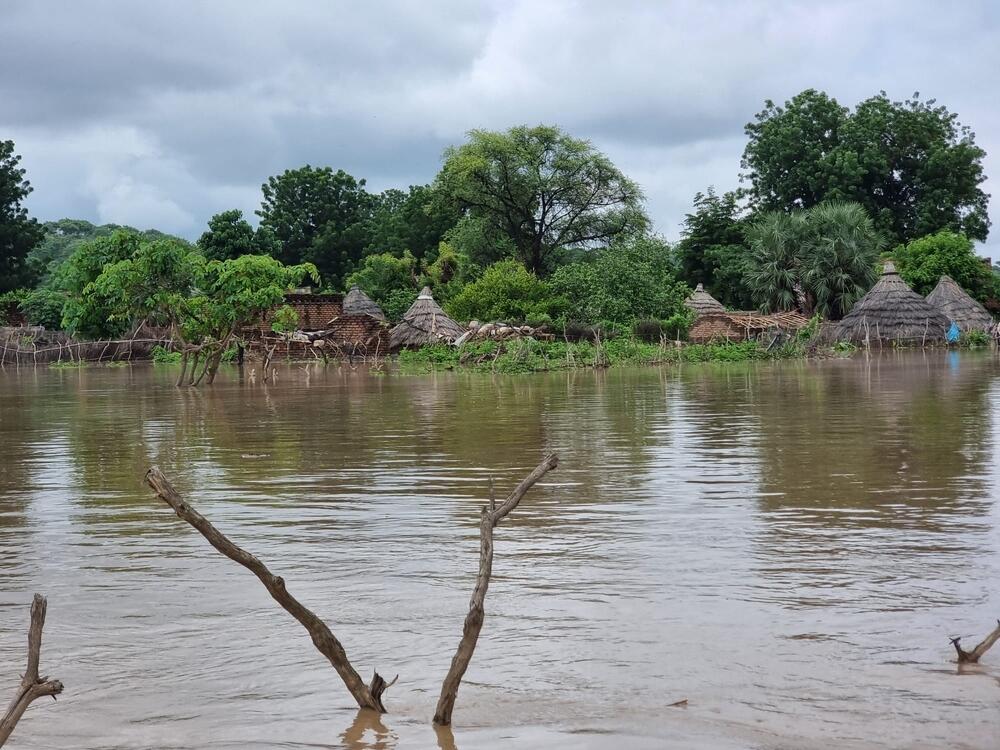Chad: Thousands hit by worst floods in living memory
Médecins Sans Frontières / Doctors Without Borders (MSF) calls for a rapid response in the town of Koukou in eastern Chad.
Thousands of people have fled flood waters, seeking refuge on a hill, with desperate shortages of food, shelter, drinking water and healthcare, while MSF teams have already pulled hundreds from the water.
Koukou and surrounding villages were hit by heavy rains in early August. The Wadi Bahr Azoum river, which runs alongside the town, overflowed on 5 August, causing a large part of Koukou to flood the following day.
On Friday 9 August the water rose again, but this time much more intensely, resulting in flooding that people have described as unprecedented in living memory. The entire town was devastated with the waters wreaking havoc on people in Koukou and surrounding villages.
“The water came in a huge surge, with high speed, high force,” says Julie Melichar, MSF Sila project coordinator. “In places, people could not walk anymore, they had to swim.
“We saw people fleeing, panicking that they could not make it out in time. We could hear houses collapsing all around us. We saw people looking at their homes being destroyed in front of them.
“Thousands and thousands of people moved from the town to the hill to seek refuge. They tried to take whatever they could with them, but it was very little.”
Trapped and at risk
Many people have lost everything, trapped upon a hill without clean drinking water, food or shelter. MSF teams report that the thousands of people in the makeshift camp include many children, pregnant women and elderly people.
Many wells are flooded and contaminated, with people forced to drink stagnant water. Food stocks have been destroyed in a place where there was already a food crisis before these tragic floods.
People have little shelter from the rain and many have been victims of snakebites. The health centre and hospital were flooded and the majority of medical stocks are ruined.
MSF is calling for humanitarian organisations to provide emergency assistance for people in Koukou and the region now, and to assess the needs in surrounding areas.
Given the extent of the flooding, solutions must urgently be found to reach affected communities rapidly, and bring supplies.
Food and shelter must be an immediate priority, as well as an effective water, sanitation and hygiene response to reduce the risk of disease outbreaks. People may be trapped for some time, with the risk that the floods will rise again even higher.
“People in Koukou need humanitarian organisations to come to their aid, otherwise this natural disaster will become a humanitarian catastrophe”
What is MSF doing?
All MSF staff and their families in Koukou are affected by this disaster but they are working to help their community. In an MSF boat, MSF and local authorities were able to rescue 296 people trapped by the waters.
“Colleagues were calling, telling us they were floating in their houses, asking us to send the boat,” says Melichar.
“People’s rafts capsized, they had to seek refuge in trees. All through the night until the morning our boat was helping to rescue people.”
MSF has set up a mobile primary health clinic on the hill and is improving access to drinking water. But this disaster has occurred at the worst possible time, when both malaria and malnutrition rates are at their seasonal peaks.
“We’re treating malaria, acute watery diarrhoea and respiratory tract infections,” says Melichar. “We’re also extending the water system because right now people are drinking contaminated water. But people are facing shortages of everything you can imagine.
In this scenario I dread to think what types of health problems can develop, epidemics are a very real threat. We’re very worried. People in Koukou need humanitarian organisations to come to their aid, otherwise this natural disaster will become a humanitarian catastrophe.”

Help us prepare for the next emergency
MSF and Chad
Since 2015, thousands of people in the Lake Chad region have been forced to flee their homes as a result of violent clashes between armed groups and Chadian military forces. MSF teams are currently responding to the crisis in the east and south of the country.
Since the outbreak of the conflict in neighbouring Sudan in April 2023, hundreds of thousands of Sudanese refugees have also sought safety in Chad. We have been running medical services in the east of the country to meet the needs of both the refugees and vulnerable Chadians.

